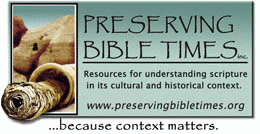Dr. Don Clark of Creation Moments, along with Jim, David and the Morning Show audience, examines an article from Baptist Press and a book by scientist and author Nathaniel Jeanson that explains how human ancestry can be traced back to the Great Flood …
Podcast: Play in new window | Download (Duration: 29:21 — 67.2MB)






Thank you for your comments, Steve. We appreciate them. I would agree that the peer review process has led to, in essence, pure censorship, especially in controversial fields such as creation reach and now in clinical research, as we have seen since COVID. Science has made its most significant advances when there is a free flow of ideas. It should be the institution’s responsibility and not a panel of potentially biased editors to help assure that the research has been done with integrity. We can discuss the merits of the conclusions based on the data. But if we are never allowed to see the data, no discussion can be had. Free speech is very much under attack today, and the research community is not immune.
The topic of peer review emerged as part of this discussion. I wish to share my concerns with the peer-review standard (by which I mean that which is prior to publication, so as to vet and approve that which is deemed ‘acceptable’ science), that I believe was widely adopted in the first half of the 20th century, as part of an unscientific mainstreaming censorial impulse. Peer review involves unavoidable contra-scientific elements such as group-think, career-related concerns, funding and editorial conflicts expressed through review assignments, needless delay to publishing, good-ole-boy favoritism toward certain authors/institutions and an inherent a priori resistance to paradigmatically threatening conclusions. In addition, the mystique of peer-review effectively promotes an air of scientific superiority over non peer-reviewed published research, even though there is no scientific basis for this to be so. I recall that numerous prominent scientists, including Albert Einstein, have expressed disapproval of peer-review. Unadulterated scientific communication of research results can only be achieved when scientists are free to publish without having first had their work (and, more subtly, their institution and themselves) vetted by often competing and conflicted ‘peers’; at that point, true peer scientists can offer public and private criticism, as well as conduct investigations repeating those described in the published paper, the results of which they themselves can publish. Deuteronomy 19:15 and following -affirmed by the Savior- binds us to conducting a full investigation before coming to conclusions, and James warns against the practice of favoritism; peer review unavoidably involves breaches of both principles. As Christians, therefore, I suggest that we ought to stand opposed to peer review, with its inherent censorship and monopoly-guild overtones (as separate from simple copy editing for grammar and clarity) in favor of public consideration of all research offered for such.
Fascinating point of view, Steve! Thanks for your thoughts. We’ll forward them to Dr. Don for his comment …
Thanks for your consideration, Jim. I also would like to hear Dr. Don’s views. Particularly acutely since 2020 and the emergence of a ‘mandatory’ conventional pandemic/lockdown narrative, we have witnessed widespread censorship and suppression of research and career researchers (one example of many is Dr. Peter McCullough, once very highly esteemed by his peers and extensively published, but now heavily suppressed and maligned in his [and his associates’] efforts to publish findings that turned out to be contrary to CDC narrative; peer review and editorial bias were to primary tools in this suppression). Scientific dialog has suffered much from peer review bias used as a suppressive tool, with respect to such topics such as climate change, radiometric dating vaccination safety and efficacy and more.
I suggest that the core question is this: How does vetting by peers-so-called, prior to publication, advance the quality of quantity of intra-scientific dialog? I see only harm.